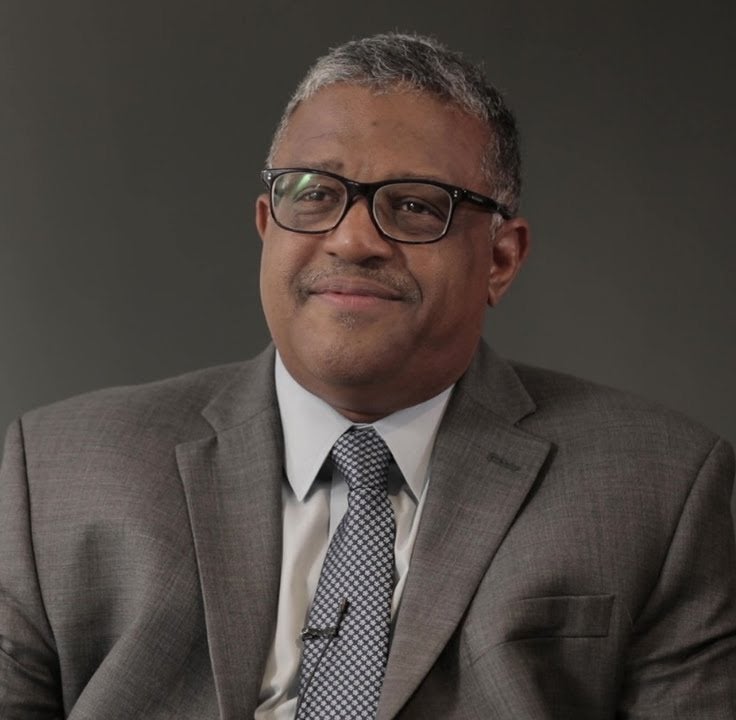MBTA chief safety officer to resign at the end of the month after 3 years in the position
Local News
MBTA General Manager Phillip Eng has appointed Rod Brooks, a senior advisor on capital, operations, and safety, to lead the transit authority’s Safety Department while officials search for Ron Ester’s replacement.
The MBTA’s chief safety officer, Ron Ester, will resign at the end of the month after three years in the position, MBTA General Manager Phillip Eng announced Tuesday.
Ester’s resignation will go into effect on Aug. 30, Eng said in an email to employees. He has appointed Rod Brooks, a senior advisor on capital, operations and safety, to lead the transit authority’s Safety Department while officials search for Ester’s replacement.
“I am proud of the work that we have done to make our system safer during my tenure, despite the many challenges that we have faced. The MBTA has been underinvested in for decades, and it has taken a lot of hard work to make our system as safe as it is today,” Ester said in a statement Tuesday.
“I know that there is still more work to be done, but I am proud to have played a leading role in many of the improvements that have taken shape. It’s bittersweet to be stepping away from my role, but I know that the MBTA is in good hands with Phil Eng.”

In the email, Eng praised Ester for implementing many recommendations made in the 2019 Safety Panel Report. He helped usher in a new safety management system, the transit authority’s COVID-19 safety measures, and led the MBTA through the Federal Transit Authority’s (FTA) safety inspection in 2022, Eng said.
“I am grateful for Ron’s service to the MBTA. He has made a real difference in the safety of our system, and he will be missed,” Eng, who took over the MBTA in April, wrote in the email.
Ester’s tenure as chief safety officer
Ester took the job in August 2020 as part of a reorganization of the Safety Department, The Boston Globe reported. Before that, he spent nearly 30 years working for the Chicago Transit Authority.
While the MBTA’s safety issues are long-standing, safety on the system continued to decline under Ester. The FTA found that between January 2019 and April 2022, the T had a higher rate of serious safety events than the industry average and that safety events became more serious during that time, the Globe reported.
Ester was also in charge when the MBTA’s most infamous safety incidents occurred, such as when a Red Line passenger was dragged to his death in April 2022 and when an Orange Line train caught fire in August of that year.
Still, the MBTA claims that under Ester’s supervision, it expanded its safety department and broadened the department’s scope, the Globe reported.
Ester’s resignation did not come as a shock to transit advocates, the Globe reported.
“He walked into the middle of a pandemic which turned into an abject safety crisis under an administration that wasn’t willing to give him the resources he needed,” Stacy Thompson, executive director of LivableStreets Alliance told the newspaper. “He was put in a really tough position.”
Brian Kane, executive director of the MBTA Advisory Board, told the Globe that Ester performed his job well, but that leaving is the right decision.
“There has to be a complete remaking of safety inside the T and of safety oversight,” he said.
What Ester’s successor can expect
Ester’s resignation comes while the MBTA is struggling to hire enough employees amid high attrition rates. It’s also still having trouble meeting federal transit officials’ safety expectations.
The MBTA’s chief safety officer currently reports to MassDOT Chief Safety Officer Patrick Lavin, who Gov. Maura Healey appointed to the position in April. He also worked on the 2019 Safety Panel Report, which was a scathing indictment of the MBTA’s chronic safety issues.
But authority over safety at the MBTA could be changing. In July, the Massachusetts Legislature’s transportation committee approved a bill that would establish a new Office of Transit Safety at the state level, The Boston Globe reported.
The new office would manage safety on all of the MBTA’s modes of transportation, taking the place of the Department of Public Utilities (DPU), the Globe reported. Federal transit officials have criticized the DPU for not providing needed oversight of safety at the MBTA.
Newsletter Signup
Stay up to date on all the latest news from Boston.com
Originally posted 2023-08-16 03:36:37.